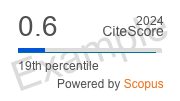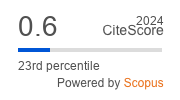Analysis of new coronavirus infection and post-COVID-19 syndrome in patients with multiple sclerosis: a pilot study
https://doi.org/10.29001/2073-8552-2023-38-2-198-208
Abstract
Actuality. Currently there are no long-term studies about the course of multiple sclerosis (MS) after coronavirus disease 2019 (COVID-19), in comparison with healthy volunteers who recovered from COVID-19 and patients with MS who didn’t have COVID-19.
Aim: To study effect of COVID-19 on MS course.
Material and Methods. We examined 39 patients with MS who recovered from COVID-19 (40.76 ± 11 years), 21 patients with MS who didn’t have COVID-19 (38.1 ± 12 years) and 33 healthy volunteers who recovered from COVID-19 (39.7 ± 10 years). We performed neurological examination and testing according to clinical and neuropsychological scales.
Results. The majority of MS patients had a mild form of COVID-19 (22 people, 68.75%). Among the symptoms of COVID-19 in MS patients, headaches (12 people, 30.8% vs. 18 people, 54.5%) and chest pain (2 people, 5.1% vs. 9 people, 27.3%) were less common than in the control group of healthy volunteers. The duration of the disease, the age of onset, the average frequency of exacerbations, the use of disease modifying therapies, the result on clinical and neuropsychological scales did not show statistically significant differences between the two groups of patients with MS. The incidence of post-COVID syndrome in patients with MS was 79.48% and 88.44% in healthy volunteers. Among MS patients who had COVID-19, there were significantly more persons with a moderate decrease in the quality of life, higher fatigue scores compared to healthy volunteers, but less apathy compared to patients without COVID-19 with MS. The presence of vaccination reduced the risk of COVID-19 infection by 7.4 times in patients with MS.
Conclusion. There was no significant effect of COVID-19 on patients with MS during short-term follow-up.
About the Authors
V. A. MalkoRussian Federation
Valeria A. Malko, MD, Graduate Student, Department of Neurology and
Psychiatry with the Clinic of Medical Education Institute, Junior Research
Scientist, Research Laboratory of Coronavirus Disease 2019 and Post-COVID
Syndrome of the World-Class Scientific Center “Center for Personalized
Medicine”
2, Akkuratova str., St. Petersburg, 197341, Russian Federation
G. N. Bisaga
Russian Federation
Gennady N. Bisaga, Dr. Sci. (Med.), Professor, Department of Neurology
and Psychiatry with the Clinic of Medical Education Institute
2, Akkuratova str., St. Petersburg, 197341, Russian Federation
M. P. Topuzova
Russian Federation
Mariya P. Topuzova, Cand. Sci. (Med), Associate Professor, Department
of Neurology and Psychiatry with the Clinic of Medical Education Institute,
Senior Research Scientist, Research Laboratory of Coronavirus Disease
2019 and Post-COVID Syndrome of the World-Class Scientific Center “Center
for Personalized Medicine”
2, Akkuratova str., St. Petersburg, 197341, Russian Federation
A. I. Vlasenko
Russian Federation
Anastasiya I. Vlasenko, Medical Resident, Department of Neurology
and Psychiatry with the Clinic of Medical Education Institute
2, Akkuratova str., St. Petersburg, 197341, Russian Federation
O. A. Shcherbakova
Russian Federation
Olesia A. Shcherbakova, Fifth-Year Student, Faculty of Medicine,
Medical Education Institute
2, Akkuratova str., St. Petersburg, 197341, Russian Federation
A. G. Mikheeva
Russian Federation
Anna G. Mikheeva, MD, Graduate Student, Department of Neurology
and Psychiatry with the Clinic of Medical Education Institute, Research
Assistant, Research Laboratory of Coronavirus Disease 2019 and PostCOVID Syndrome of the World-Class Scientific Center “Center for Personalized Medicine”
2, Akkuratova str., St. Petersburg, 197341, Russian Federation
A. A. Mikhailova
Russian Federation
Arina A. Mikhailova, Research Aassistant, Research Laboratory of
Coronavirus Disease 2019 and Post-COVID Syndrome of the World-Class
Scientific Center “Center for Personalized Medicine”; Resident, Department
of Endocrinology
2, Akkuratova str., St. Petersburg, 197341, Russian Federation
D. I. Lagutina
Russian Federation
Daria I. Lagutina, Research Assistant, Research Laboratory of
Coronavirus Disease 2019 and Post-COVID Syndrome of the World-Class
Scientific Center “Center for Personalized Medicine”; Resident, Department
of Endocrinology
2, Akkuratova str., St. Petersburg, 197341, Russian Federation
T. L. Karonova
Russian Federation
Tatiana L. Karonova, MD, Dr. Sci. (Med.), Head of the Research
Laboratory of Coronavirus Disease 2019 and Post-COVID Syndrome of
the World-Class Scientific Center “Center for Personalized Medicine”, Chief
Research Scientist, Clinical Endocrinology Laboratory, Professor, Department
of Internal Medicine
2, Akkuratova str., St. Petersburg, 197341, Russian Federation
T. M. Alekseeva
Russian Federation
Tatyana M. Alekseeva, Dr. Sci. (Med.), Head of the Department of
Neurology and Psychiatry with the Clinic of Medical Education Institute
2, Akkuratova str., St. Petersburg, 197341, Russian Federation
References
1. Wu Y., Xu X., Chen Z., Duan J., Hashimoto K., Yang L. et al. Nervous system involvement after infection with COVID-19 and other coronaviruses.Brain, Behav. Immun. 2020;8718–22. DOI: 10.1016/j.bbi.2020.03.031.
2. Lima M., Siokas V., Aloizou A.-M., Liampas I., Mentis A.-F.A., Tsouris Zet al. Unraveling the possible routes of SARS-COV-2 invasion into the central nervous system. Curr. Treat Options Neurol. 2020;22(11):37DOI: 10.1007/s11940-020-00647-z.
3. Bsteh G., Assar H., Gradl C., Heschl B., Hiller M. S., Krajnc N. et al. Long-term outcome after COVID-19 infection in multiple sclerosis: a nation-wide multicenter matched-control study. Eur. J. Neurol. 2022:10.1111/ene.15477. DOI: 10.1111/ene.15477.
4. Pugliatti M., Berger T., Hartung H.-P., Oreja-Guevara C., Bar-Or A. Multiple sclerosis in the era of COVID-19: disease course, DMTs and SARSCoV2 vaccinations. Current Opinion in Neurology. 2022;35(3):319–327.DOI: 10.1097/WCO.0000000000001066.
5. Sormani M.P., De Rossi N., Schiavetti I., Carmisciano L., Cordioli C.,Moiola L. et al. Disease-modifying therapies and coronavirus disease 2019 severity in multiple sclerosis. Ann. Neurol. 2021;89(4):780–789.DOI: 10.1002/ana.26028.
6. Bsteh G., Hegen H., Traxler G., Krajnc N., Leutmezer F., Di Pauli F. et al.Comparing humoral immune response to SARS-CoV2 vaccines in people with multiple sclerosis and healthy controls: An Austrian prospective multicenter cohort study. Eur. J. Neurol. 2022;29(5):1538–1544. DOI: 10.1111/ene.15265.
7. Nalbandian A., Sehgal K., Gupta A., Madhavan M.V., McGroder C., Stevens J.S. et al. Post-acute COVID-19 syndrome. Nat. Med. 2021;27(4):601–615. DOI: 10.1038/s41591-021-01283-z.
8. Bell M.L., Catalfamo C.J., Farland L.V., Ernst K.C., Jacobs E.T., Klimentidis Y.C. et al. Post-acute sequelae of COVID-19 in a non-hospitalized cohort: Results from the Arizona CoVHORT. PLoS One. 2021;16(8):e0254347. DOI: 10.1371/journal.pone.0254347.
9. Garjani A., Middleton R.M., Nicholas R., Evangelou N. Recovery From COVID-19 in multiple sclerosis: a prospective and longitudinal cohort study of the United Kingdom Multiple Sclerosis Register. Neurol. Neuroimmunol. Neuroinflamm. 2021;9(1)e1118. DOI: 10.1212/NXI.0000000000001118.
10. Czarnowska A., Kapica-Topczewska K., Zajkowska O., AdamczykSowa M., Kubicka-Bączyk K., Niedziela N. et al. Symptoms after COVID-19 infection in individuals with multiple sclerosis in Poland. J. Clin. Med. 2021;10(22):5225. DOI: 10.3390/jcm10225225.
11. Salter A., Fox R.J., Newsome S.D., Halper J., Li D.K.B., Kanellis P. et al.Outcomes and risk factors associated with SARS-CoV-2 infection in a North American registry of patients with multiple sclerosis. JAMA Neurol. 2021;78(6):699–708. DOI: 10.1001/jamaneurol.2021. 0688.
12. Klineova S., Harel A., Straus Farber R., DeAngelis T., Zhang Y,Hentz R. et al. Outcomes of COVID-19 infection in multiple sclerosis and related conditions: One-year pandemic experience of the multicenter New York COVID-19 Neuroimmunology Consortium (NYCNIC). Mult. Scler. Relat. Disord. 2021;55:103153. DOI: 10.1016/j.msard.2021.103153.
13. Toscano S., Chisari C.G., Patti F. Multiple sclerosis, COVID-19 and vaccines: making the point. Neurol. Ther. 2021;10(2):627–649. DOI: 10.1007/s40120-021-00288-7.
14. Kelly H., Sokola B., Abboud H. Safety and efficacy of COVID-19 vaccines in multiple sclerosis patients. J. Neuroimmunol. 2021;356:577599. DOI: 10.1016/j.jneuroim.2021.577599.
15. Dreyer-Alster S., Menascu S., Mandel M., Shirbint E., Magalashvili D.,Dolev M. et al. COVID-19 vaccination in patients with multiple sclerosis: Safety and humoral efficacy of the third booster dose. J. Neurol. Sci.2022;434:120155. DOI: 10.1016/j.jns.2022.120155.
Review
For citations:
Malko V.A., Bisaga G.N., Topuzova M.P., Vlasenko A.I., Shcherbakova O.A., Mikheeva A.G., Mikhailova A.A., Lagutina D.I., Karonova T.L., Alekseeva T.M. Analysis of new coronavirus infection and post-COVID-19 syndrome in patients with multiple sclerosis: a pilot study. Siberian Journal of Clinical and Experimental Medicine. 2023;38(2):198-208. (In Russ.) https://doi.org/10.29001/2073-8552-2023-38-2-198-208





.png)





























